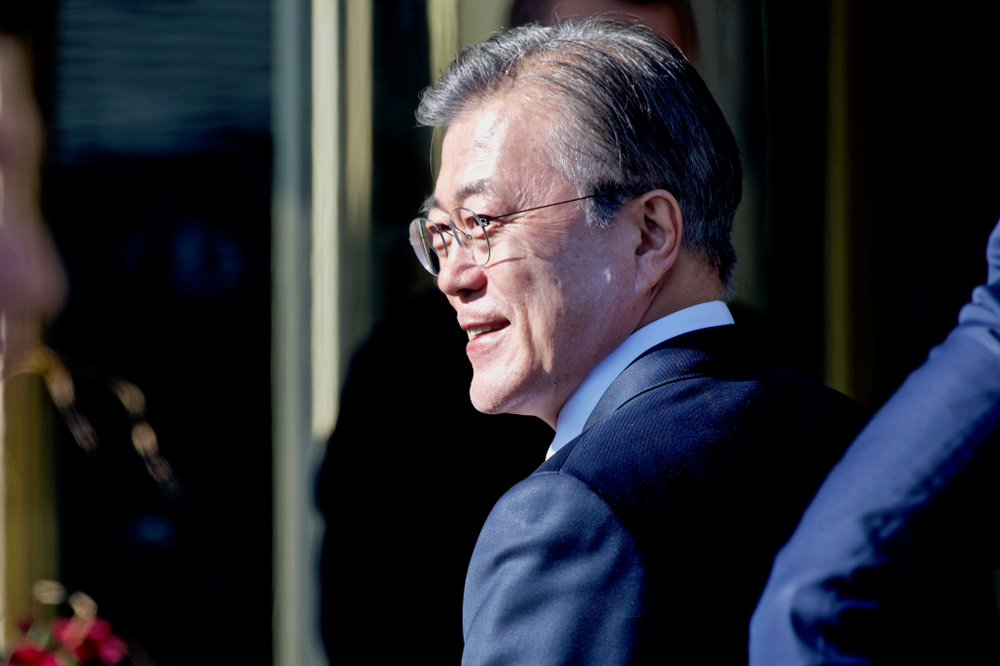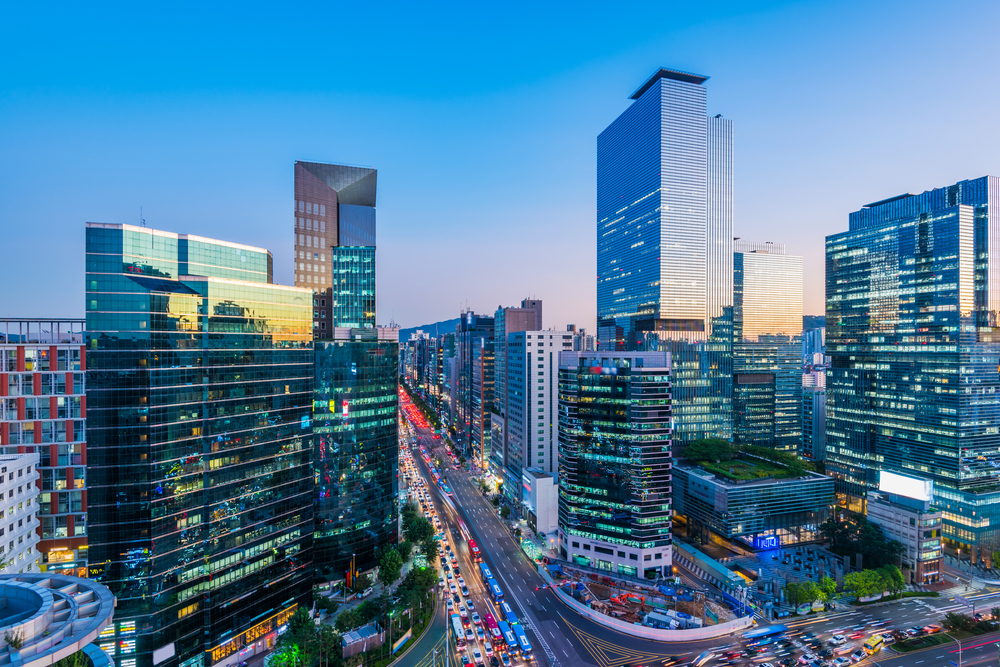Uncontrollable soaring property values in South Korea leaves re-elected government reeling
Industry experts reveal that elevated property values make foreign buyer restrictions and property taxes inevitable

In April, when the ruling Democratic Party in South Korea swept regional elections on the back of widespread praise for its handling of the Covid-19 pandemic, President Moon Jae-in’s approval ratings soared to 70%. Four months later, that figure has dropped to less than 44%—a dramatic slide most observers attribute to one overriding factor: failure to rein in skyrocketing house prices.
Although the South Korean economy was left reeling by the pandemic, house prices in Seoul climbed 6.2% during the first five months of the year, fuelled by rates slashed by 75 basis points, making mortgages cheaper in a country traditionally beset by borrowing restrictions.
“Whilst this was clearly necessary and is effective monetary policy, the impact of record-low interest rates has been that borrowing is cheaper, which has only caused Seoul residential prices to soar,” says Robert Wilkinson, managing director of Colliers International in South Korea. “Frankly, it is a tricky situation and there is not much that the Bank of Korea can do.”
Central bank governor Lee Ju-Yeol has said helping the coronavirus-hit economy supersedes property price concerns. Critics, however, note that house prices have risen faster under Moon than during any other South Korean administration in recent history, thereby undermining the president’s leftist credentials. The average price of apartments in Seoul has climbed 54.7% since Moon took office in 2017 despite 23 rounds of price combating measures—and counting—in just over three years.
Boom-and-bust economic cycles have played a part: Moon inherited a buoyant economy spurred by South Korea’s hosting of the Winter Olympics in early 2018, followed by a once-in-a-century pandemic. By contrast, his predecessor Lee Myung-bak, who oversaw rare negative growth in South Korean house prices, took office seven months before the collapse of Lehman Brothers. A key difference now versus then is that South Korea has gained precedence as a destination for international buyers.
In 2017, when Moon took office, South Korea’s economy lost an estimated $6.8bn amid a Chinese economic boycott over the deployment of the American THAAD missile system, a gambit targeting North Korea that also angered Beijing over claims its radar could reach into northeastern China. Ideologically, it was then considered unpatriotic for Chinese to buy anything South Korean, including real estate.
The average price of apartments in Seoul has climbed 54.7% since Moon took office in 2017 despite 23 rounds of price combating measures—and counting—in just over three years
The following year, Moon used the Winter Olympics in Pyeongchang to stage a diplomatic charm offensive towards North Korea, leading to the most significant cooling of relations in Northeast Asia in years. The South edged closer to the North, and in turn both built bridges with Beijing. Suddenly Chinese tourists and homebuyers flocked to South Korea, sending foreign house purchases soaring nearly 25% in 2018, of which 60% were attributed to the Chinese.
In the first five months of 2020, overseas house purchases further jumped to 27%, according to the Korea Appraisal Board, and in June foreign transactions climbed above 2,000—a first in a calendar month. Rather than dampen foreign appetite for South Korean property, Covid-19 has spurred inquiries, according to Georg Chmiel, executive chairman of Juwai IQI, the largest online platform for Chinese homebuyers overseas.
“Chinese demand for Korean properties spiked in Q1, when the coronavirus looked like it might just be a Chinese phenomenon,” says Chmiel. “Buyers were looking for overseas investments and safe havens.”

While the median price for Chinese enquiries is $310,000 in other countries, in South Korea the price jumps to a staggering $2.142mn, according to Juwai IQI data. It’s a sign of just how inflated the South Korean market has become—and the growing willingness among Chinese to match those high prices.
Amid a flurry of headlines over soaring foreign purchases, recent months have seen South Koreans “struggling to afford their own homes” call for curbs on such activity. The government appears to be listening: a number of lawmakers from the ruling Democratic Party have proposed a bill taxing foreign buyers up to 20% should they fail to take up residence in the property within six months.
Given Moon’s party occupies more than half of seats in parliament after April’s landslide election win, the bill is almost certain to pass, surmises JoAnn Jieun Hong, a director at Savills in Seoul. “Koreans who keep failing to buy houses in Seoul welcome policies to put heavy taxes on owners with more than two houses,” says Jieun.
The government faces a difficult balancing act with property taxes: homeowners in South Korea have been complaining they are paying too much, and the country has only recently become a destination for foreign buyers. Property taxes reached $22.7bn last year, equivalent to 1.5% of nominal GDP—the highest in the developed world, according to the National Assembly Budget Office. In the US, by contrast, property taxes equate to just 0.1% of GDP.
In an attempt to ease supply, the Ministry of Land announced plans to build new homes in Seoul’s greenbelt in July, but in just five days reversed the decision amid heavy criticism. Two weeks later, the government instead said it would build new homes by converting military and government zones to residential, and increase height limits on construction from 35 to 50 storeys. That same week, Moon described house prices as the country’s “most pressing issue”.
Moon is zeroing in on housing speculation, starting with his own administration. To make a point that everyone should be treated equally, the government called on its own members to sell off second homes, which has only drawn attention to wealthy officials and generated yet more criticism.
By mid-August, three of Moon’s aides had quit and more had threatened to do so. Not even the Finance Minister Hong Nam-ki has spared himself, although he did still hold his job following his own public admission.
“As a cabinet member, I’m deeply ashamed of myself in front of fellow citizens, and my acquaintances, amid controversy over multiple homes owned by public servants,” Hong stated in a hastily written post on Facebook in early July.
All this contrition is all very well, but how forgiving the public will be of Moon’s government in the long-term remains a burning question.
This article originally appeared in Issue No. 162 of PropertyGuru Property Report Magazine
Recommended
Why everyone is moving to Selangor and Johor: Malaysia’s real estate comeback
Malaysia’s upturn in fortunes is especially prevalent in secondary destinations such as Selangor and Johor
Penang’s silicon boom: How the US-China tech war is supercharging local real estate
Penang’s booming semiconductor industry has created ripples within the local real estate sector
New leader, new opportunities: How Hun Manet is shaking up Cambodia’s real estate game
Hun Manet is overseeing decent economic growth and widening access to the country’s real estate market for foreigners
Singapore embraces inclusive housing reforms amid resilient demand
The Lion City’s regulatory strength continues to exert appeal for international investors








